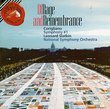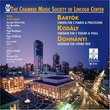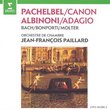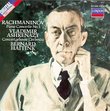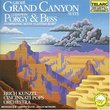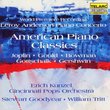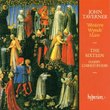| All Artists: Franz Joseph Haydn, Heidelberger Sinfoniker, Thomas Fey Title: Haydn: Symphonies Nos. 104 ("London") & 94 ("Surprise"); Acide e Galatea Overture Members Wishing: 0 Total Copies: 0 Label: Hanssler Classics Original Release Date: 1/1/2000 Re-Release Date: 6/27/2000 Genre: Classical Styles: Historical Periods, Classical (c.1770-1830), Symphonies Number of Discs: 1 SwapaCD Credits: 1 UPCs: 040888834021, 4010276010388 |
Search - Franz Joseph Haydn, Heidelberger Sinfoniker, Thomas Fey :: Haydn: Symphonies Nos. 104 ("London") & 94 ("Surprise"); Acide e Galatea Overture
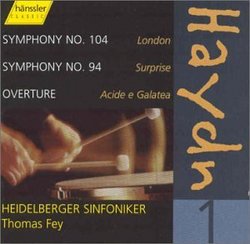 | Franz Joseph Haydn, Heidelberger Sinfoniker, Thomas Fey Haydn: Symphonies Nos. 104 ("London") & 94 ("Surprise"); Acide e Galatea Overture Genre: Classical
|
Larger Image |
CD DetailsSimilar CDs
Similarly Requested CDs |
CD ReviewsGood to Excellent Modern "Surprise" - The "London" Lacks t Doug - Haydn Fan | California | 05/15/2008 (4 out of 5 stars) "Thomas Fey's Haydn with the Heidelberger Sinfoniker has received reams of printed praise. I liked his version of Haydn's 85, "La Reine". Haydn: Symphonies 83-85 Yet this old Haydn hand hears less to rave about here in the "London". To begin with - why did the producer put the "London" Symphony first, and the "Surprise" second? The latter six works are slightly different in many small ways, and if you're familiar with Haydn, small things matter in large ways. Basically they're slightly larger scaled; enjoy more sophisticated orchestration using larger forces and new instruments, where Haydn avails himself to the beautiful colorings of clarinets, and a full array of Janissary percussion effects; and finally the last six are definitely far more pompous. Personally I lean to going in chronological order. I do agree with placing the overture to "Acide e Galatea" last - we're not buying this CD for it, but the symphonies. In the performances of all these works Fey proves himself alert to Haydn's markings, but I don't accept a few points he makes. Foremost is the opening of the "London". The "London" Symphony opens with one of the great horn calls in all of classical music. Stately, powerful, even electrifying, the opening chords should sound out across the hall like thunder. A mighty paean and apotheosis it rings out with both a valedictory finality and an absolute certainty in the worth of the symphony to follow. Fey, however, sees this opening rather differently. For the young conductor Haydn never meant to go all out at the beginning, and so he holds back just a bit. Instead he opens with a less than full-throated call, and just to make sure you understand where he's coming from, repeats it again in the same single forte fashion - and not full throttle - when it returns. Listening through this performance of 104 I also wondered if it's posssible to do fair justice to such a mighty symphony with medium forces. The answer seems to be incontrovertibly NO! This is a work of grand dimensions, and however many highly detailed and fancy touches you bring out here and there, the details have to lead outward into a full expanding work, breathtaking in its creation of music of such seemingly unlimited dimensions. Fey's orchestra company plays well enough, but for me it doesn't quite convince me it has the right heft and body for such a work. Intense playing and highly charged bursts can be exciting, but if they do not connect and enlarge the overall scaffolding then the result is to short change the work's final greatness. Lots of busyness cannot substitute for massive proportions when called for, nor can an interior presentation truly represent the composer's grand enterprise in this work of art. I continue to wonder, too, if any such group as recorded here can sustain the many full string passages vital to the music's forward flow. (Especially in the face of Fey's aggressive timpani and horns.) I am happy to report the "Surprise", the other major half of this double bill, receives a performance far more happily 'in tune' with the basic nature of the work. Fey and his orchestra carry out many of the trickier passages with fine teamwork, and Fey's trademark impetuosity is on display in all the right places. An excellent modern version in fine sound. The short - 6 minute - overture is played nicely enough and makes an excellent filler. Fey seems to have an affinity for short allegro passages - and certainly can be trusted never to turn them into adagios! The overture's adagio is quite short and there is never any issue about sustaining flow, so inherent in longer slow sections. The Presto is exactly that: brightly played at a great rip and over almost before it begins! Haydn fans seeking one of the grandest performances ever recorded of Hadyn's Symphony 104, the "London", might make a dedicated search for the Woldike performance on Vanquard. Haydn: Symphonies Nos. 99-104 Although recorded in 1956 it still retains tremendous punch while capturing a remarkale range of Haydn's details. Although the samples don't do full justice to how this CD actually sounds, being far more diminished than the actual CD, you can still check it out. You might note: on the Woldike set of the last six symphonies Willi Boskosvky plays the delightful violin solo in 103, the "Drum Roll." (And Woldike doesn't stint there either - giving full impact to the famous opening drum roll! Read the reviews below! Woldike was a superb Haydn conductor on the grand scale. Woldike's only weakness, a tendency to downplay the comic, is not really an issue in this stately work, Symphony 104. If you own a record player it also can be picked up on used LPs for a song, and comes with an outstanding flip side with the Haydn 103. " Haydn Symphonies - Fey & HeidelbergSO: Spicey, Amazing Dan Fee | Berkeley, CA USA | 06/29/2007 (5 out of 5 stars) "My recorded standards in Haydn to date have included the complete Fischer Austro-Hungarian cycle, now released total on Brilliant at a good price I believe, plus the older Dorati with the Philharmonia Hungarica, probably now drifting through used bins somewhere. Other supplemental recordings included Bernstein's NYP run of the later symphonies, and Paris cycle sets with Dutoit and von Karajan.
The band at hand in these discs - six or seven to date in a projected complete recorded set of all the Haydn symphonies - is a strange bird, indeed. The Heidelberg SO uses a mix of modern and period instruments, with the strings and woodwinds being modern, and the brass being period originals or rebuilds of authentic period instruments. Why Thomas Fey and friends came up with this mix is difficult to explain, exactly. On the surface, it seems like an odd idea that probably would not work, musically. Yet, against all early odds, Fey and company do make it all work, and brilliantly at that. Fey studied with some of the leading lights of the period instrument performance movement, including Harnoncourt, and the truth of my listening ears is that I would much prefer to hear him, so far, than I like to hear his world-class pioneer and mentor. As it happens, this mix is just about perfect for Haydn. You get a punch from the period brass that seems obvious, once you have heard it. Beethoven got his sforzandos from somewhere, in this view. Haydn comes off like a pretty vital, cool character. Not missing touches of gallantry and elegance, particularly in the loving care that is paid by these players to slower movements and lightening textures - a touch of very sweet, then. But on the whole, their approach stays so alive and vital that few will get sleepy, even listening closely to Papa Haydn. Tempos are reliably fast, but not rushed to blur the articulation of phrases and chords so important to the harmonic story being told by the composer. Against all odds, the strings, woodwinds, and period brass have a blend - spicy and piquant - all their own. One suspects that Fey and friends relied on their own ears, more than on abstract notions, as they molded their performance strategy. The sound is regular 16-bit CD in stereo - but very good for all that. And do check out similarly Wow performances of Beethoven - an interrupted complete cycle in progress? - and Mozart. The real deal for music first, and period performance invention, second. Very Highly Recommended." |

 Track Listings (11) - Disc #1
Track Listings (11) - Disc #1


